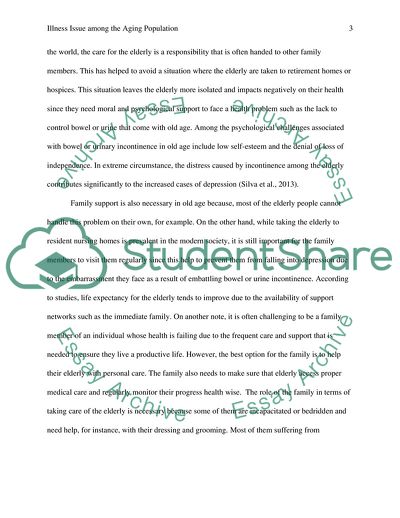Cite this document
(Incontinence as a Health Issue among the Aging Population Essay Example | Topics and Well Written Essays - 3500 words, n.d.)
Incontinence as a Health Issue among the Aging Population Essay Example | Topics and Well Written Essays - 3500 words. https://studentshare.org/sociology/1877044-aging-health-and-society
Incontinence as a Health Issue among the Aging Population Essay Example | Topics and Well Written Essays - 3500 words. https://studentshare.org/sociology/1877044-aging-health-and-society
(Incontinence As a Health Issue Among the Aging Population Essay Example | Topics and Well Written Essays - 3500 Words)
Incontinence As a Health Issue Among the Aging Population Essay Example | Topics and Well Written Essays - 3500 Words. https://studentshare.org/sociology/1877044-aging-health-and-society.
Incontinence As a Health Issue Among the Aging Population Essay Example | Topics and Well Written Essays - 3500 Words. https://studentshare.org/sociology/1877044-aging-health-and-society.
“Incontinence As a Health Issue Among the Aging Population Essay Example | Topics and Well Written Essays - 3500 Words”. https://studentshare.org/sociology/1877044-aging-health-and-society.


